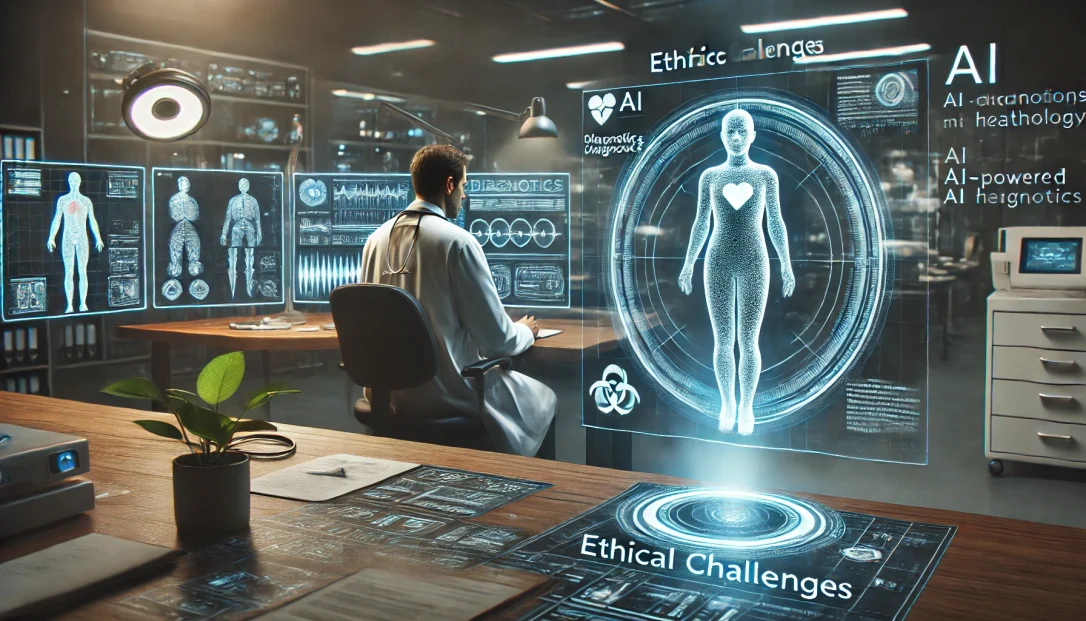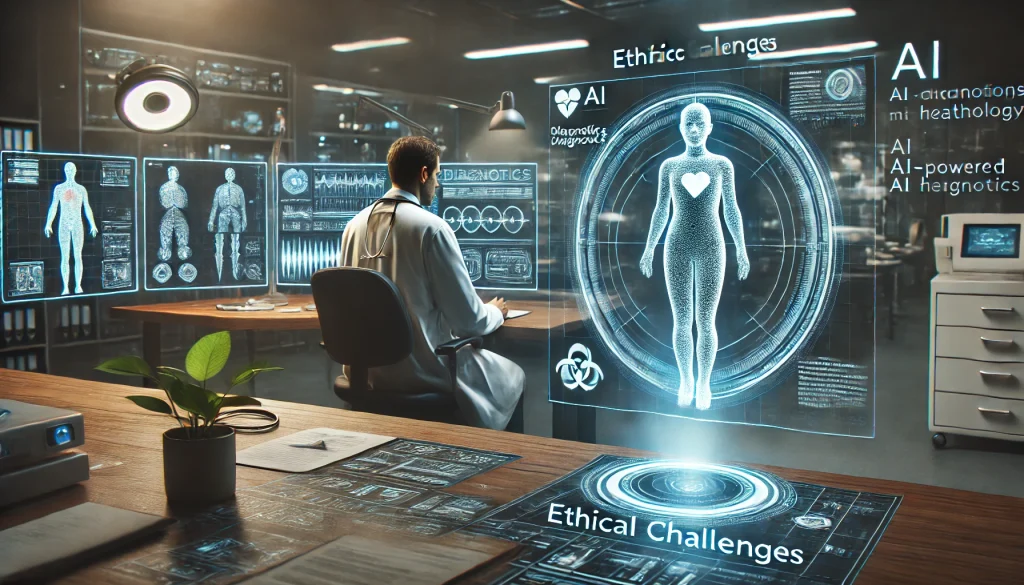Introduction
Artificial Intelligence (AI) is revolutionizing industries, enhancing productivity, and transforming daily life. However, with great power comes great responsibility. As AI continues to evolve, it brings with it a host of ethical challenges that need addressing. From data privacy to bias in algorithms, the development of ethical AI is crucial to ensure these systems benefit society as a whole. In this post, we’ll explore the key ethical issues surrounding AI and discuss strategies for tackling these challenges.
1. What Are AI Ethics?
AI ethics refers to the principles and guidelines that govern the design, development, and deployment of AI technologies. These ethics ensure AI systems operate responsibly, fairly, and transparently.
- Definition: AI ethics are a set of values aimed at ensuring AI technologies respect human rights, privacy, and fairness.
- Purpose: To prevent harm and promote trust in AI systems.
Key Insight: Ethical AI is not just a technical issue; it’s a societal one, impacting millions of lives globally.
2. The Importance of AI Ethics
Without ethical guidelines, AI could lead to unintended consequences, including discrimination, invasion of privacy, and even misuse for malicious purposes.
A. Building Trust
AI systems that prioritize ethical principles foster trust among users and stakeholders.
B. Ensuring Fairness
Ethical AI seeks to eliminate biases, ensuring decisions made by AI systems are fair and just.
C. Preventing Harm
By adhering to ethical guidelines, developers can minimize risks and prevent harm to individuals or groups.
3. Key Ethical Challenges in AI Development
While AI offers numerous benefits, its development is fraught with ethical dilemmas:
A. Data Privacy and Security
AI systems rely on vast amounts of data to function effectively. However, collecting and storing sensitive data raises privacy concerns.
- Challenge: Ensuring data is used responsibly without compromising user privacy.
- Solution: Implementing strong data protection measures and anonymization techniques.
B. Bias and Discrimination
AI systems can unintentionally perpetuate biases present in their training data, leading to discriminatory outcomes.
- Challenge: Addressing biases to ensure AI systems make fair decisions.
- Solution: Diverse and representative datasets, coupled with continuous monitoring and refinement.
C. Transparency and Explainability
AI systems, especially complex ones, often function as “black boxes,” making it difficult to understand how decisions are made.
- Challenge: Ensuring transparency so users can trust AI decisions.
- Solution: Developing explainable AI models that provide clear reasoning behind their outputs.
D. Accountability
Who is responsible when an AI system makes a mistake? The lack of clear accountability in AI raises significant concerns.
- Challenge: Defining accountability in AI-driven processes.
- Solution: Establishing clear guidelines on accountability and liability.
E. Misuse of AI
AI technologies can be exploited for malicious purposes, such as deepfakes, cyberattacks, or surveillance.
- Challenge: Preventing the misuse of AI.
- Solution: Implementing ethical guidelines and regulations to curb malicious use.
4. Strategies for Ethical AI Development
To address these challenges, developers, organizations, and policymakers must work together:
A. Establishing Ethical Guidelines
Organizations should adopt comprehensive ethical frameworks for AI development.
- Example: The European Union’s AI Act aims to regulate AI technologies to ensure they align with ethical principles.
B. Continuous Monitoring and Evaluation
AI systems should be regularly assessed to ensure they remain aligned with ethical standards.
C. Promoting Diversity in AI Teams
A diverse team brings varied perspectives, reducing the likelihood of bias in AI systems.
D. Engaging Stakeholders
Involving users, policymakers, and experts in AI development ensures a broader understanding of its societal impact.
5. The Role of Regulation in AI Ethics
Governments and regulatory bodies play a critical role in enforcing ethical standards:
- Data Protection Laws: Regulations like GDPR protect user data and ensure transparency.
- AI-Specific Regulations: Emerging laws focus on the ethical use of AI, addressing issues like accountability and bias.
Takeaway: Regulatory frameworks provide a safety net, ensuring AI technologies adhere to ethical guidelines.
6. Ethical Dilemmas in Emerging AI Applications
As AI technologies advance, new ethical dilemmas arise:
A. Autonomous Vehicles
Who should an autonomous vehicle prioritize in an unavoidable accident? Ethical considerations are critical in programming such decisions.
B. AI in Healthcare
AI-driven diagnostics must balance accuracy with patient privacy and consent.
C. Surveillance Technologies
AI-powered surveillance raises questions about privacy and the potential for misuse by governments or corporations.
7. The Future of Ethical AI
The journey toward ethical AI is ongoing, with several promising trends:
- Explainable AI (XAI): Enhancing transparency and trust.
- Ethical AI Frameworks: More organizations are adopting robust ethical guidelines.
- Collaborative Efforts: Global initiatives bring together experts, organizations, and governments to address AI ethics.
Future Outlook: Ethical AI will play a pivotal role in shaping the future of technology, ensuring it benefits humanity without compromising fundamental rights.
Conclusion: The Need for Ethical AI Development
AI ethics is a complex but essential aspect of AI development. By addressing challenges like bias, privacy, and accountability, we can create AI systems that are not only powerful but also trustworthy and fair. As we continue to innovate, ethical considerations must remain at the forefront of AI development.
In the next chapter, we’ll delve into AI Governance – Who’s in Charge?, exploring the regulatory landscape and governance frameworks shaping the future of AI.







